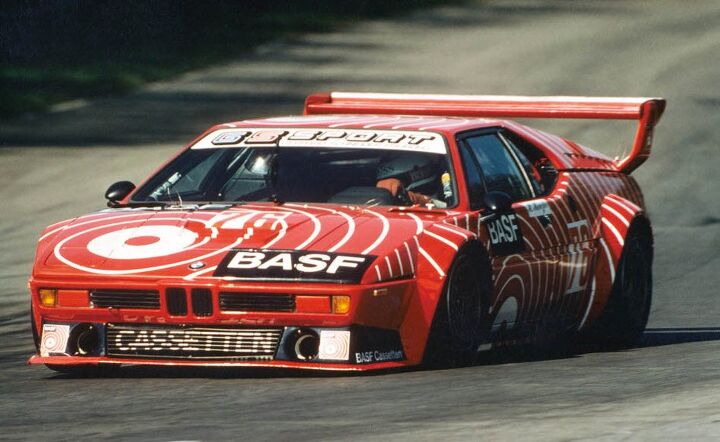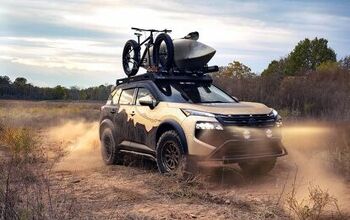BASF Investing In EV Battery Market Despite Industry Setbacks
Though some electric vehicles have seen their share of woes, from fires in individual cars to bankruptcies filed by manufacturers, German chemical maker BASF is going in for the long game by investing in the EV battery market.
Bloomberg reports the world’s largest chemical maker will use a part of its annual $2.3 billion R&D budget on battery materials — one of 10 areas targeted for growth by BASF — in the pursuit of a better battery that will help EVs run longer. Company head of global business management for BASF’s battery materials unit Adrian Steinmetz says his employer is committee to making the battery materials focus a success, noting that newer and safer batteries with a higher capacity will prove beneficial to the overall EV market:
The battery can only be as good as the chemistry inside. It’s a very technically demanding field and you really need to understand the whole interplay between different chemical compounds.
To accomplish this goal, BASF has bought four companies, established a nickel cobalt manganese plant in the United States, and bought patent licenses from rival Mitsubishi Chemical Holdings Corp, one of three market leaders — the others being Sumitomo Chemical and Ube Industries — whose dominance over lithium-ion technology, aided by proximity to related tech industries, reigns supreme.
By 2020, BASF aims to be one of the top three battery materials suppliers, pushing overall market valuation to $20 billion in the same time frame. Part of this plan includes taking the fight to the home turf of their Asian rivals, already begun with the company’s establishment of a battery materials research and development center in Amagasaki, Japan. The R&D unit provides BASF with the majority of its Asian sales.
Seattle-based writer, blogger, and photographer for many a publication. Born in Louisville. Raised in Kansas. Where I lay my head is home.
More by Cameron Aubernon
Latest Car Reviews
Read moreLatest Product Reviews
Read moreRecent Comments
- MaintenanceCosts I already set out total costs, so this time I'll list what's had to be done on my cars (not counting oil changes, recall, or free services):2019 Bolt (25k mi): new 12v battery, pending tires & battery cooling service2016 Highlander (from 43k to 69k mi): new front rotors, new pads all around, new PCV valve, 2x 12v batteries, light bulbs, pending tires2011 335i (from 89k to 91k): new valve cover gasket, new spark plugs, light bulbs, pending rear main seal1995 Legend (from 185k to 203k): timing belt/water pump, new EGR valve + pipe, struts, strut bushings, drive axles, tie rods, rear control arms, other suspension bushings, coolant hose & brake lines throughout, belts, radiator, valve cover gaskets, new power antenna, 12v battery, coils, spark plugs, tires, rear pads... it's an old car!
- VoGhost Consistent with CR's data. I've spent about $150 total on the Model 3 in six years of ownership, outside of tires.
- VoGhost It's just plain sad that Posky doesn't know that EV batteries are warrantied for 8 years / 100K miles.
- Jkross22 It used to be depreciation was the most expensive part of car ownership. Seems like those days are over (New EVs and lux cars excluded). Maintenance + insurance have taken over. Dealerships offering 2 years of maintenance means nothing. That's $200 tops. It's the unexpected repairs - a wiring harness, computer module, heater core, AWD problems - that will cost dearly. Brakes can be expensive since many cars now can't have rotors resurfaced. Even independents are charging a lot for this work.
- FreedMike VW tossed in two years' maintenance on my car, and the next one's due after the lease is up. But all the car's needed has been oil changes and tire rotations. Unfortunately, the OEM tires (Hankook Kinergy) were unrepentant trash and needed to be replaced at around 23,000 miles. So...my maintenance cost over over a little under three years has been t $800 for the new tires. That sucks, but the new tires (Goodyear Eagle Sport) are a massive upgrade over the Hankooks. Ah well.


































Comments
Join the conversation
" .. with sales expected to hit $686.7 billion" I bet. Two thirds of a trillion bucks? Just by BASF? That's more than the retail value of 15 million cars at $30 grand apiece.
I'd like to hijack this thread and talk about something more interesting, like compact cassette formulations, the only time I've ever encountered BASF. I still remember how miserable tape formulations were, particularly with Type I formulations. I remember what made BASF different was the fact that their coatings didn't flake off, and they had premium protective shells. Things got better with the Type II chrome dioxide tapes, and some of my favorite mix tapes were on Pioneer branded tapes. My best recordings were with Dolby C and Sony metal Type IV, which were pretty close enough to CD quality at the time, as long as I picked a formulation that best matched my JVC tape deck and took the time to select an appropriate tape bias. It's all moot now, considering everything is digital and the maddening quirks of analog have gone away.